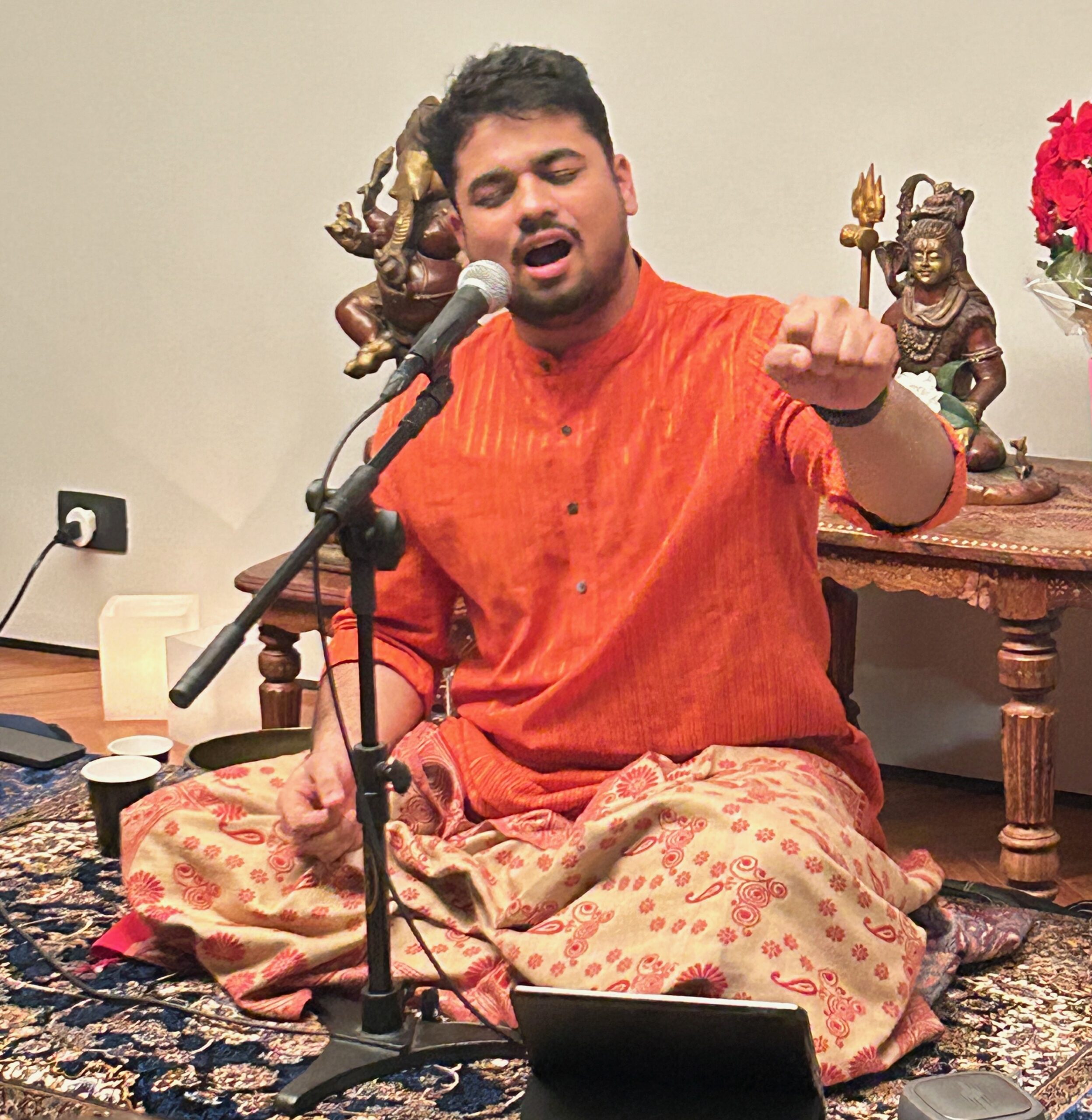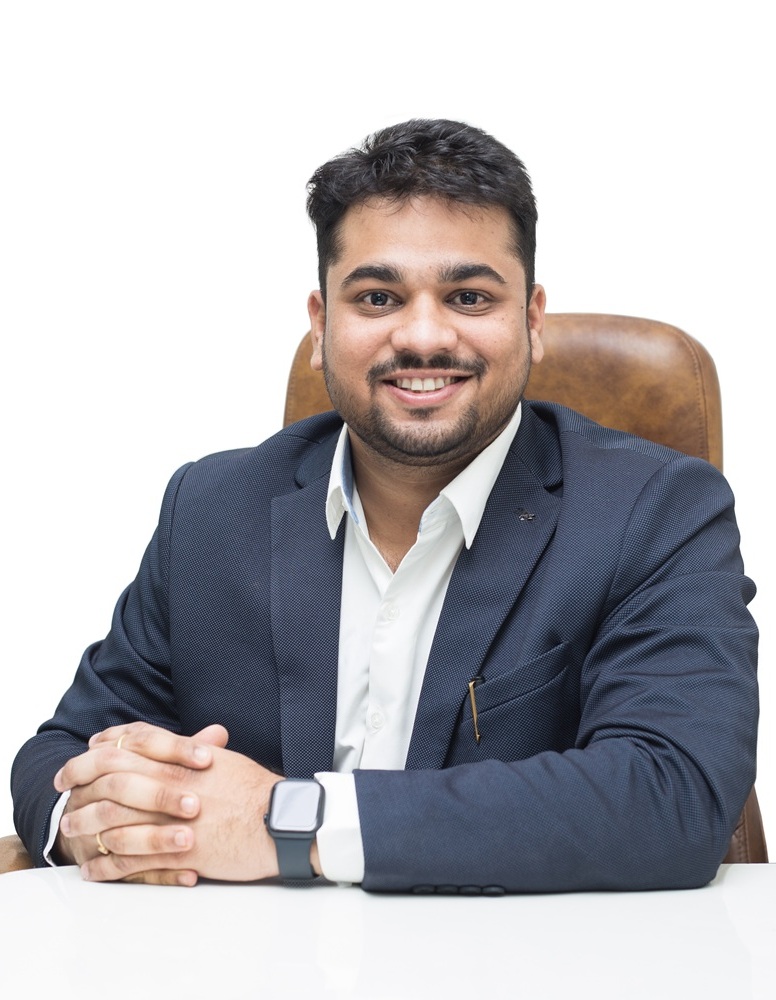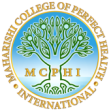News | Insights | Stories
Advancing careers in holistic health
The science of Maharishi Gandharva Veda Music Therapy: a consciousness-based approach to healing
By Vaidya Dr Shubham Kulkarni

Music has been an integral part of human culture for centuries, transcending language, geography, and time. Among the various ancient musical traditions, Gandharva Veda stands out as a profound system of sound healing derived from the Vedic sciences of India. Unlike modern music therapy, which primarily focuses on psychological and neurological benefits, Maharishi Gandharva Veda Music Therapy is rooted in the principle of consciousness-based healing. It aligns human physiology with cosmic rhythms, making it a unique and holistic therapy beneficial for both wellness and illness, spanning from prenatal care to geriatric support.
Understanding Maharishi Gandharva Veda Music Therapy
Gandharva Veda is the ancient science of sound and melody that aims to create harmony between the individual and the universe. It is not merely an artistic form but a spiritual and therapeutic system designed to influence the mind, body, and consciousness. Each raga (melodic pattern) is linked to specific times of the day and night, as well as distinct emotional and physiological responses.
Consciousness-based healing
Unlike conventional music therapy, Maharishi Gandharva Veda works at the level of consciousness. The key principles that make it a consciousness-based therapy include:
1. Resonance with natural rhythms: The music is aligned with the natural biorhythms of the body and the cycles of nature, promoting deep harmony and balance.
2. Activation of higher states of consciousness: Regular exposure to Gandharva Veda music is believed to elevate one’s consciousness, leading to inner peace, stress reduction, and enhanced self-awareness.
3. Therapeutic Ragas: Specific ragas are prescribed for different health conditions, times of the day, and mental states, ensuring a precise impact on the listener’s consciousness and overall well-being.
Benefits of Maharishi Gandharva Veda Music Therapy across life stages
One of the remarkable aspects of this therapy is its applicability across different stages of life, from prenatal care to geriatric well-being.
1. Prenatal and perinatal care
Music therapy during pregnancy has been found to enhance fetal development, reduce maternal stress, and create a deep bond between mother and child. Gandharva Veda music, particularly soft, melodic ragas promotes relaxation, emotional stability, and balanced development for the baby’s nervous system. Studies suggest that babies exposed to soothing music in the womb show improved cognitive abilities and emotional resilience post-birth.
2. Infancy and early childhood
For infants, sound is one of the first sensory experiences. Gandharva Veda therapy can help in developing auditory perception, improving sleep cycles, and calming colicky babies. It also enhances early brain development and strengthens emotional security.
3. Adolescence and youth mental well-being
The teenage years are often marked by emotional turbulence and academic stress. Gandharva Veda music therapy can assist in reducing anxiety, improving focus, and fostering emotional stability.
4. Adulthood – stress management and wellness
In today’s fast-paced world, adults often suffer from chronic stress, anxiety, and lifestyle-related illnesses. Gandharva Veda music therapy helps in managing stress, improving sleep quality, and enhancing emotional resilience.
5. Middle age – preventive and restorative healing
As individuals approach middle age, health concerns such as hypertension, cardiovascular issues, and metabolic disorders become prevalent. Gandharva Veda music, when integrated with lifestyle modifications, can act as preventive therapy.
6. Geriatric care – cognitive and emotional support
In elderly individuals, music therapy is particularly beneficial for conditions such as dementia, Alzheimer’s, and depression. Gandharva Veda music stimulates memory, enhances mood, and provides emotional comfort.
Scientific and Ayurvedic correlation
Maharishi Gandharva Veda Music Therapy aligns with Ayurvedic principles of Tridosha balance (Vata, Pitta, Kapha) and Satwavajay Chikitsa (mind-based therapy). Ayurveda recognizes the therapeutic potential of sound (Shabda) in restoring balance in the body and mind.
From an Ayurvedic perspective, disease arises when there is disharmony in the body’s internal rhythms. Gandharva Veda aims to restore this harmony through its carefully composed melodies. Each Raga has an inherent vibrational quality that interacts with the listener’s physiology, helping to balance the three Doshas—Vata, Pitta, and Kapha.
Listening to the right Raga at the right time enhances well-being, bringing the mind and body into a state of natural balance.
Technical aspects of Gandharva Veda Ragas
What makes Gandharva Veda unique is its precise structure and timing. Ragas are not randomly composed; they are based on an intricate system of tonal patterns, rhythms, and specific intervals designed to resonate with the body’s natural cycles.
Time-specific Ragas
One of the key principles of Gandharva Veda is that each Raga is most effective when played at its designated time of day. This timing aligns with the body’s natural rhythms, reinforcing its effects on the nervous system.
- Morning Ragas e.g., Raga Bhairav – Promote clarity, alertness, and mental focus.
- Midday Ragas, e.g., Raga Bhimpalas – Encourage productivity and balance.
- Evening Ragas, e.g., Raga Yaman – Induce relaxation and emotional calmness.
- Late Night Ragas, e.g., Raga Darbari Kanada – Support deep sleep and emotional healing.
Scientific research on the effects of Ragas
While Gandharva Veda has been practised for millennia, modern science is now beginning to document its effects. Studies in psychoacoustics and neuroscience reveal that structured melodies can influence brain wave activity, regulate autonomic nervous system functions, and reduce stress markers. Some key findings include:
- Neurophysiological effects: A study published in the Indian Journal of Physiology and Pharmacology (2004) found that listening to Raga Bhairavi significantly lowered blood pressure and reduced stress markers in hypertensive patients.
- Cognitive and emotional benefits: Research in Frontiers in Psychology (2017) suggests that structured musical interventions can enhance memory, emotional regulation, and mental clarity.
- Impact on Ayurveda’s Doshas: Studies in Ancient Science of Life (2016) explore how Ayurvedic sound therapy, including Gandharva Veda, aligns with neuroacoustic principles, reinforcing its role in balancing Vata, Pitta, and Kapha.
- Management for insomnia: A study by Dr Shubham Ram Kulkarni published in the International Ayurvedic Medical Journal (2017) showed that regular listening to Darbari Kanada Raga is very beneficial for the management of Insomnia.
These findings confirm what Vedic scholars have long maintained—that music is not merely entertainment, but a powerful tool for well-being.
Dr Shubham Kulkarni’s work in Maharishi Gandharva Veda Music Therapy

Dr Shubham Kulkarni has been actively integrating Maharishi Gandharva Veda Music Therapy into clinical practice and research. His work focuses on applying this ancient science to neurodevelopmental disorders, psychological and neurological diseases, geriatric care, and palliative care. He has successfully utilized specific ragas for patients with dementia, anxiety, depression, terminal illnesses etc., offering relief through sound-based interventions. His research explores the scientific and Ayurvedic principles behind music’s healing effects, bridging traditional wisdom with modern therapeutic applications.
Through workshops, clinical trials, and patient-centric care, Dr Kulkarni continues to advance the understanding and efficacy of Maharishi Gandharva Veda Music Therapy in contemporary healthcare.
Conclusion
Maharishi Gandharva Veda Music Therapy is more than just an auditory experience—it is a holistic healing practice that nurtures body, mind, and consciousness. With its consciousness-based approach, it stands apart from conventional music therapy by directly influencing higher states of awareness, emotional resilience, and physiological balance. Whether it is a developing fetus, a stressed teenager, an overworked adult, or a senior seeking cognitive support, Maharishi Gandharva Veda music offers a timeless solution for wellness and healing across all life stages.
By incorporating this divine science of music into our daily lives, we can tap into its profound potential for health, harmony, and holistic well-being.
As more healthcare practitioners integrate Maharishi Gandharva Veda into their therapeutic approaches, its applications in stress reduction, mental health care, and overall wellness continue to expand. Whether experienced in a clinical setting or as a personal wellness practice, this ancient musical science offers profound benefits for contemporary life.
Explore Maharishi Gandharva Veda for yourself:
Maharishi Gandharva Veda Music Therapy workshop
For those interested in experiencing the effects of Gandharva Veda Music Therapy firsthand, the recording of the one-hour workshop held by
Dr Shubham Kulkarni on 26 April 2025 is available here:
CLICK HERE TO VIEW THE WORKSHOP RECORDING
This session includes a dedicated Q&A segment and an opportunity for participants to practically learn the basics of Gandharva Veda musical notes—including a guided exercise to sing these notes. Also, learn how specific Ragas align with nature’s rhythms to promote healing and well-being, and get a glimpse of what you will explore in the full course starting on 31 August.
Maharishi Gandharva Veda Music Therapy course
Additionally, a new Maharishi Gandharva Veda Music Therapy course will begin on 31 August 2025, offering a deeper dive into the therapeutic power of sound. Whether you are a health practitioner or someone seeking personal healing, this course provides an opportunity to learn from an expert in the field.
For more details on how to join the webinar and enrol in the course, visit: https://mcphi.org/gandharva-veda-as-consciousness-based-music-therapy/.



